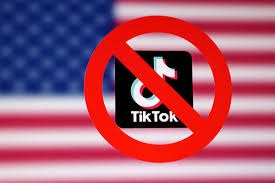Launched in 2016 by From Teen Sensation to Security Concern: The Evolution of TikTok Chinese tech firm ByteDance, TikTok fast became a global phenomenon, especially among teenagers, for its short-form video content, but concerns over data privacy and national security arose with the increasing user base.
In March 2024, the Office of the Director of National Intelligence, noted that accounts emanating from People's Republic of China, targeting candidates during 2022 United States elections elicited alarm by possible influence operation and access data on the side of the People's Republic of China.
To respond to these issues, the U.S. Congress passed the Protecting Americans from Foreign Adversary Controlled Applications Act, requiring TikTok to either divest from its Chinese ownership or face a nationwide ban. The Supreme Court upheld the Law and on January 19, 2025, TikTok faced shutdown for its 170 million U.S. users.
President-elect Donald Trump has hinted at a possible 90-day extension for ByteDance to sell its US operations, as he seeks to reconcile national security concerns with the app's mass popularity.
This is how technological innovation, user engagement, and geopolitical considerations are interwoven in the digital age.
Source: Financial Times, Associated Press, Wikipedia

